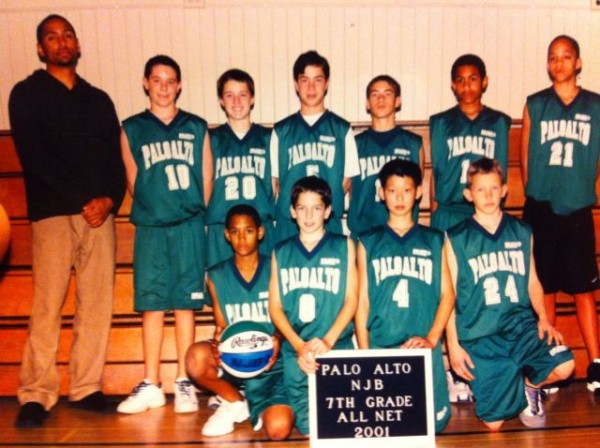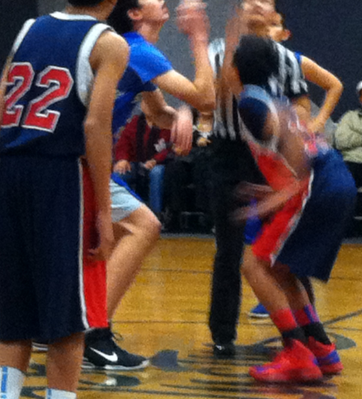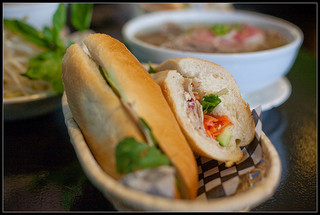 Coaching Asian American kids in youth sports has some unique challenges. During my twelve years of coaching youth sports, I have worked with a lot of Asian American kids, and while for the most part, they are just like kids of other ethnicities, I have found some differences dealing with them and their parents (never coached a star like the one pictured above, though). This past spring I officially ended my coaching career, so I thought I’d talk about the unique aspects that I found.
Coaching Asian American kids in youth sports has some unique challenges. During my twelve years of coaching youth sports, I have worked with a lot of Asian American kids, and while for the most part, they are just like kids of other ethnicities, I have found some differences dealing with them and their parents (never coached a star like the one pictured above, though). This past spring I officially ended my coaching career, so I thought I’d talk about the unique aspects that I found.
Coaching Background
While I have coached in San Jose City recreational leagues and had one single brilliant quarter coaching AAU basketball, I spent most of coaching time with my kids’ K-8 Catholic School. The student population was about 90% Asian American. The bulk of my time was spent at the middle school level (5th through 8th) where I would coach the same class of kids for four years in a row. My children’s Catholic school had between 30-38 kids per grade and had no-cut teams that mandated that everyone could play, so I got to know them well during those four years. I coached track one year, but spent the majority of time as a volleyball head coach and as a basketball assistant.
They’re so tall!
While Asian American kids can be tall, a lot of the time they are not. I never had a tall Asian kid on my teams full of Filipino and Vietnamese kids! Sometimes you get into outrageous situations like in this picture, where 5 foot 6 inch Number Two Son has to do the opening jump against the opposing 6-5 center. In grades like 5th and 6th grades, height doesn’t make that much of a difference, but as skill levels increase and differences in height grow, typically in 7th and 8th grade, it can make a big difference.
Still, height isn’t everything. While the Daughter’s Volleyball team seemed like a team full of liberos, quickness and skill made up for their lack of height, and they were fairly successful against teams of taller white girls. Number One Son’s teams, while being short, were fairly athletic and very fast. They also were successful against many taller teams. With quick, skilled, and athletic kids, basketball tactics like a full court press, a good transition game, and excellent three point shooting can overcome height differences.
Height differences can result in some stereotypical thinking and condescension from teams. One basketball team playing Number One Son’s team was made up of taller white kids. They made fun of our smaller Asian kids and their warm up drills, saying that they were doing “grade school stuff.” After getting run off the floor, their expressions changed to “who are these guys?”
Parents Parents Parents
One problem I ran into with some Asian American parents is that some valued the athletic experience very little. This attitude manifested itself in kids missing practice a lot or kids not being allowed to play at all. One boy who I coached every summer at the school sports clinic would was a decent volleyball player and would have made a nice addition to the team, but his parents would never let him play. It would be a pain when some Asian parents would have their kids miss practices or games with no notice and think nothing of it.
Another issue that would come up is that many Asian parents often would not make an investment in having their kid playing in the off season. As youth sports have become professionalized, I noticed that white and black parents were much more likely to spend the money to have their kid play in outside clubs and camps than Asian American parents. I can’t really blame them – a single season with an AAU traveling basketball team can easily push costs past a thousand dollars, and a traveling volleyball team can costs multiple thousands, even past ten thousand depending on the success of teams. It was always easy to tell which teams you played against had a lot of club players.
Just as Asian American parents can be cost conscious regarding paying for off season teams, some can see sports as a way of keeping down their day care costs. I have had Asian American kids who were totally disinterested in a sport join the team. Not sure why they did it – I suspect that their parents looked at school sports as a cheaper form of daycare.
One nice thing about some Asian American parents not valuing sports is that fewer seemed to live vicariously through their kids than parents of other ethnicities. This doesn’t mean that I haven’t run into Asian Americans who were the awful domineering “little league parent” –I will always remember an incident when one angry parent threw a chair after a game because he felt his kid didn’t get enough playing time. But overall in my experience, they tended to be nicer to work with.
You will Play or Else
Much is made about the supposed one dimensionality of Asian American kids and how that affects them in college admissions. Asian American parents know this, and some push their kids to join youth sports leagues just to make them more “rounded.” You could tell that some of the kids weren’t very happy about it. This can really be hard for them when their parents drop them with little or no skills into competitive leagues. The kids feel embarrassed as they can’t contribute much, and the other more skilled kids resent them because they aren’t contributing. This even happens at the recreation league level. On one team I coached, I had to talk to my own kids about treating these kids with more respect, as they could be pretty mean to kids who they thought were wasting their time or making their team worse.
I’m Rounding Out my Activities for High School Applications
In the process of applying for competitive high schools, sometimes kids will join a team just so they can put the experience on their applications. Another coach told me about a particularly bad case of this, where many kids who had never played volleyball before joined in their 8th grade year so that they could mention it on their applications. He really resented that, and I am sure the other kids who played for the previous three years resented it too when these newcomers came in and made it harder to win. As a coach, I got the sense that a number of kids were in sports only to pad their resumes. I resented that, as did some kids who want to win but felt cheated by kids who didn’t try hard and were just there to make their applications look better.
Yes, kids – you live in a Segregated Bubble
One thing that sports did for the Asian American kids that I coached was to teach them that they lived in a segregated bubble. I saw this in all three of the classes that I coached – it was always an eye opening for them when they played an all or mostly white team for the first time during their 5th grade year. They would sometimes get scared at this point, but that would go away after they would beat a team like that.
One amusing thing that I noticed is that some Asian American teams seemed to have an obsession about feeding their kids. I remember one Asian American team that would feed their kids a full meal (not just a snack) after not just games but after every practice. “A fast car should have good fuel” is what the Filipino coach would tell me. He wasn’t kidding: his team was really good and also really fast.
For our school teams, after game snacks are provided by each kid’s family. This responsibility was rotated among parents. On occasional, parents would bring something really Asian, even if the whole team wasn’t Asian. I remember some white kids trying to figure out what mamon was. One of my fondest is memories is of a particular potluck that The Daughter’s team held after a tournament. Lots of good food, with all the Pate chaud and banh mi you could eat! I remember some white parents staring at our tasty and to them, exotic, spread.
No More Dancing!
One stereotype about Filipino Americans have is that they all can dance. While that may be a stereotype, The Daughter’s volleyball team definitely liked to dance. They would do little dance routines after certain kinds of points. Start of game – dance routine. Block – dance routine. Ace – dance routine. It was nothing we coached. I remember some mostly white teams would have a WTF expression on their when our girls would do this. Other teams got so irritated at all their little 5 second dance routine (particularly after aces), that the next year, all celebrations after aces were banned from our league.
You’ll always be Mister
The Daughter is in college now, and she is still friends with some of the girls I coached. When I see them, they always call me Mr. S. With many Asian Americans, the parents of friends that you are close with often called “Uncle” or “Auntie”. The Daughter does this with parents of her close friends, and her friends call The Wife “Auntie.” But me? I am always “Mr. S.” to the kids I coached. I think it comes from being in the authority figure position of coach, and there continues to be some distance and formality there. I have always thought that kind of irritating – why is the Wife Auntie while I who spent hours and hours working with them, am just Mister? I guess that’s better than them calling me Jeff.
Moving On
Now that I am done with coaching, how do measure success? Wins and Losses? The Daughter and Number One Son’s team usually had winning records, but Number Two Son’s usually did not. Getting into the selective high schools? I think that is one possible metric. I did support activities that looked good on kids’ high school applications, and many of them did make it on the selective high school of their choice. A definite measure of success is when kids would play in high school the sport that I coached them. A few girls and boys went on to play volleyball at the high school level. One girl I coached got a full ride division 1 sports scholarship, but that wasn’t in a sport I coached, so I can’t count that.
I don’t miss the grind of running practices, trying to balance work and team schedules, and dealing with unmotivated kids. I do miss teaching skills to the kids and watching them develop and improve. It was also great to see my own kids play and spend time with them. If some of you get a chance to coach your kids, I’d recommend taking that opportunity. I am very happy that I did, and I hope that these tips can make it easier for you. Also, if you have experience coaching Asian American kids and have some anecdotes about those times or have other pointers about Asian American kids, I’d be really curious to hear them.
(top photo credit: Fan IQ)
(Banh mi photo credit: kennymatic)









